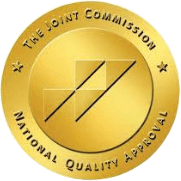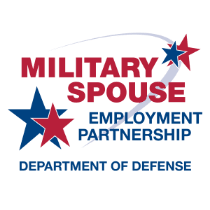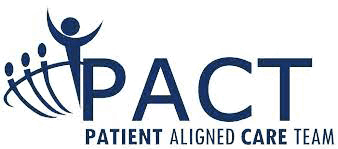
Case Studies
We’ve always got your 6

Challenge Accepted
For nearly two decades, Valor Healthcare has been focused on bringing specialized care to Veterans and American patriots across the country. Our patients often face challenges and circumstances that require delicate and unique solutions, and our job is to ensure their needs are met.
In many cases, what our patients need is guidance with adherence to recommended opioid usage, which is why Valor partnered with Ameritox on a new methodology to more effectively monitor for opioid abuse. Other times, patients just want to be heard. Unfortunately, with clerical work taking up so much of a practitioners’ valuable time, that was becoming a challenge. In response, Valor rolled out new technology to eliminate some of that burden, helping practitioners to avoid burnout and spend more time face-to-face with patients.

Valor Healthcare Invests in Leadership Development to Improve Patient Outcomes
Overview
Leaders in the healthcare industry must employ innovative and strategic measures to ensure staff are engaged in order to ensure continuity of care and ongoing positive outcomes for patients.
Challenge
In a study of healthcare workforce turnover, researchers found that low engagement was a high predictor of turnover for clinicians (Willard-Grace et al., 2019) and led to lower rates of preventative care and patient satisfaction (Plomondon et al., 2007). Additionally, patients whose primary care physician left the workforce or changed practice locations sought less primary care and more specialty care, urgent care, and emergency department care services (Sabety et al., 2021).
To minimize the risk of turnover and the likelihood of these problems plaguing Valor Healthcare and our patients, we doubled down on our efforts to invest in our organizational leaders in a way that recognized these vital employees’ changing needs.
Solution
Valor engaged with FranklinCovey, a respected advisor in leadership and business execution, and its online learning module, “The 4 Essential Roles of Leadership.” We made this content available to all national and regional leaders, leveraging the training provided and implementing the “Wildly Important Goal,” or WIG, strategy as a means to engage our colleagues and improve patient outcomes.
Outcome
It should be noted that Valor measures its success on all quality measures against the VA national average as well as the average scores for the parent VA Medical Center to which the clinic belongs – in regard to this case study, that was VA Tennessee Valley Healthcare System (VATVHS).
At the beginning of this initiative—which focused specifically on improving Non-Diabetes Mellitus Blood Pressure control and flu vaccine utilization for the trial—Valor was below both the VA national and VATVHS averages in these measures. Within one week of implementation of the WIG strategy, Valor surpassed both our own goal and the National and Medical Center averages for both measures. In reviewing the data, it became abundantly clear that a WIG-based leadership strategy and focus on quality can result in immediate improvement in clinical outcomes that improve patients’ health.


Reducing Inappropriate Use of PSA Screening for Prostate Cancer: a Population Health Case Study
Overview
Clinical Informatics, Data Analytics, and Population Health Methodologies Lead to Significant Reduction in the Clinically Inappropriate Use of PSA-Based Screening for Prostate Cancer.
Challenge
In November of 2019, a systematic review of data obtained from the electronic health records (EHR) of veterans seen at Valor outpatient clinics, it was noted that many of our medical providers (physicians, physician assistants, and nurse practitioners) were routinely ordering PSA screening blood tests in a fashion inconsistent with national clinical practice guidelines and USPSTF recommendations. Specifically, for men 70 years and older, Valor Healthcare providers were (in aggregate) unnecessarily screening for prostate cancer using the PSA blood test 31.8% of the time. In contrast, for veterans enrolled in VA healthcare across the country, the rate was 30%.
Following the Plan-Do-Study-Act (PDSA) model for process improvement, Valor Healthcare initiated a plan to identify reasons for the inappropriate ordering as well as a multi-faceted approach to improvement. We found that the reasons for inappropriate ordering of PSA screening in men 70 years and older fell into three broad categories:
- Basic knowledge deficit in our veteran patients, community medical providers and clinical staff.
- A lack of clear, consistent, and company-wide clinic-level process to identify PSA blood tests for whom the test is not recommended.
- Bias among the staff to adhere to the patient’s wishes, regardless of whether or not the test was clinically indicated to improve the veteran’s perceived patient experience.
Solution
Once the factors contributing to the inordinately high percentage of men 70 and older having a PSA drawn were identified and contributing factors were assessed, an actionable process improvement plan was designed. Data sets were reported on a monthly basis, which allowed for close and rapid follow up with staff to ensure compliance with the improvement plan and overall improvement of the metric nationwide.
Outcome
The study found that clinical quality scores are 25% higher in physician-run organizations. When a physician leads a healthcare organization, it signals they have “walked the walk” and the organizations they lead are focused on the most important value – the needs of the patient come first. Our organization is keenly focused on delivering evidence-based, outcomes-proven, best-in-industry healthcare for the federal government and its many serving patriots.


Preventing Substance Dependency Through Enhanced Screening
Challenge
Pressure is mounting for legislators, local leaders, the military and the civilian healthcare community to take decisive action to stem the opioid epidemic. To help in the fight, Ameritox and Valor created a new partnership.
The Ameritox – Valor Healthcare Clinic Initiative
Ameritox teamed up with Valor in October 2015 to launch an initiative at two of Valor’s CBOCs. Under this initiative, RxGuardian confirmation testing and enhanced data analysis methodologies were deployed to determine if the medical monitoring enhancements could improve patient adherence versus the existing urine screening tool.
Objective
This study describes the use of LC/MSMS confirmatory testing and RxGuardian data analysis by VA clinicians in Valor Healthcare Veteran treatment facilities. The goal was to provide VA clinic physicians with a tool to evaluate patients’ medication adherence and establish safer opioid prescribing practices.
Solution
LC/MSMS confirmation results combined with RxGuardian data analysis generated results that differed from the conclusions of the existing monitoring system 12% of the time. We found that RxGuardian can improve urine screens by providing a baseline of medication adherence for comparison to patient urine test results.

Medical Scribes In VA Clinics Improve Primary Care Access, Veteran Satisfaction, And Medical Provider Retention

Challenge
After spending only seven minutes of a 30-minute appointment face-to-face with Veterans, medical providers are feeling burn out and the need for a medical scribe to enter EHR data.
Though electronic health records (EHR) are vital to our care delivery model, medical providers and Veterans alike have been dissatisfied with the amount of time providers are required to spend in front of the computer completing clerical tasks.
Objective
Ameritox teamed up with Valor in October 2015 to launch an initiative at two of Valor’s CBOCs. Under this initiative, RxGuardian confirmation testing and enhanced data analysis methodologies were deployed to determine if the medical monitoring enhancements could improve patient adherence versus the existing urine screening tool.
Solution
Utilize medical scribes to assists the provider with navigating the EHR, entering information as directed by the provider, locating information that requires review, reesearching information requested by the provider and responding to various messages as directed by the provider.
Awards & Recognition
We take great pride in everything we do at Valor. And that commitment to quality and dedication to our craft shows in the recognition we regularly receive for going above and beyond with patients and our teammates. Here’s a snapshot of just some of the awards our organization has been given.




